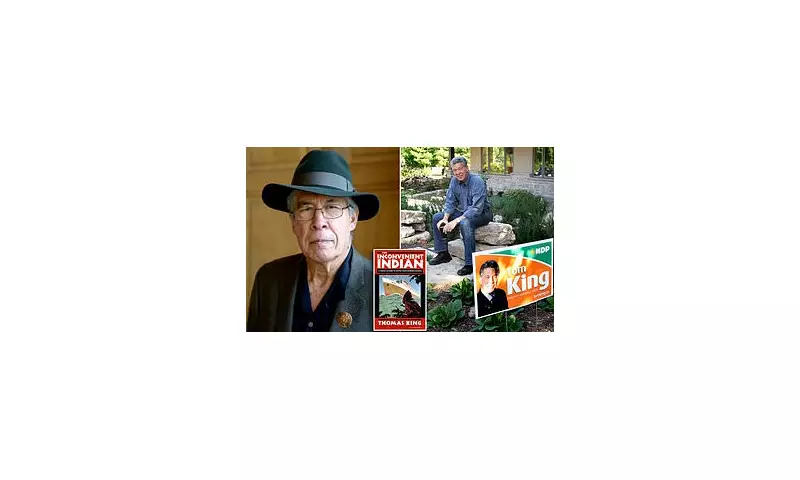
In a stunning personal revelation that has sent ripples through the literary world, an acclaimed author who built his career on writing about Native American experiences has publicly admitted he has no Indigenous heritage.
Thomas King, the 82-year-old writer, spent over four decades identifying as part-Cherokee, a central pillar of his identity and work. This foundation was shattered when a genealogist from the Tribal Alliance Against Frauds presented him with evidence that contradicted his lifelong belief.
The Shattering Revelation
King described being completely blindsided by the discovery, which emerged during a video call earlier this month with the genealogist and a professor of Indigenous studies. "It's been a couple of weeks since that video call, and I'm still reeling," King wrote in The Globe and Mail. "At 82, I feel as though I've been ripped in half, a one-legged man in a two-legged story. Not the Indian I had in mind. Not an Indian at all."
The author explained that his mother had told him his biological father was part-Cherokee, information he had never questioned. Decades later, he tracked down a paternal aunt who reinforced this family narrative. The story suggested that his father's biological father was a man with the surname Hunt, though his father was raised by a stepfather who gave him the King surname.
The Investigation That Changed Everything
King first encountered rumours questioning his heritage several years ago. In October, he proactively reached out to the Tribal Alliance Against Frauds to investigate. The organisation specialises in exposing false claims of Indigenous heritage.
Armed with the family information King provided, researchers traced both the King and Hunt family lines. The investigation yielded shocking results: "No Cherokee on the King side. No Cherokee on the Hunt side. No Indians anywhere to be found."
King initially resisted the findings, hoping for a research error. However, as the genealogist matched pieces of his family history with documented evidence, the absence of any Cherokee connection became undeniable.
Confronting the Consequences
The revelation forces King to confront significant professional and personal questions. He has published more than 20 books primarily documenting the Native American experience and received numerous accolades.
In 2020, he was named Companion of the Order of Canada, one of the nation's highest honours, for work that "exposes the hard truths of the injustices of the Indigenous peoples of North America" and "has changed our perception of Canadian history."
King now grapples with whether he benefited professionally from his claimed Cherokee heritage and whether he inadvertently took opportunities from Indigenous authors. Despite recommendations from the Tribal Alliance Against Frauds that he apologise, King has stopped short of doing so, maintaining he genuinely believed his heritage claims.
He acknowledges that Indigenous causes, organisations, and artists may now distance themselves from him, understanding the need to protect their communities from false representation.
This case emerges amid heightened scrutiny of heritage claims by public figures. Similar controversies have involved Canadian singer Buffy Saint-Marie, the Metropolitan Museum of Art's first Native American curator Patricia Marroquin Norby, and University of California Ethnic Studies Professor Andrea Smith.
The conversation around identity and representation continues to evolve, with King's story representing one of the most prominent recent examples of heritage claims being thoroughly investigated and publicly corrected.





